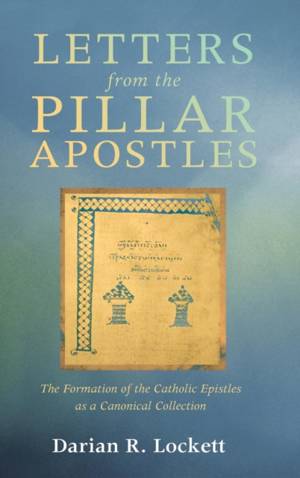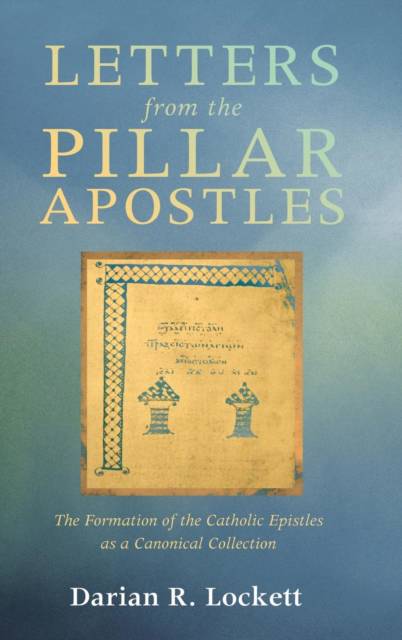
- Retrait gratuit dans votre magasin Club
- 7.000.000 titres dans notre catalogue
- Payer en toute sécurité
- Toujours un magasin près de chez vous
- Retrait gratuit dans votre magasin Club
- 7.000.0000 titres dans notre catalogue
- Payer en toute sécurité
- Toujours un magasin près de chez vous
Description
Rather than reading the Catholic Epistles in isolation from each other--understanding their individual historical situations as the single, determinative context for their interpretation--this study argues that a proper understanding of these seven letters must equally attend to their collection and placement within the New Testament canon. Resisting the judgment of much of historical-critical analysis of the New Testament, namely, that the concept of canon actually obscures the meaning of these texts, it is the canonical process by which the texts were composed, redacted, collected, arranged, and fixed in a final canonical form that constitutes a necessary interpretive context for these seven letters. This study argues that through reception history and paratextual and compositional evidence one can discern a collection consciousness within the Catholic Epistles such that they should be read and interpreted as an intentional, discrete canonical sub-collection set within the New Testament. Furthermore, the work argues that such collection consciousness, though not necessarily in the preview of the original authors (being perhaps unforeseen, yet not unintended), is neither anachronistic to the meaning of the letters nor antagonistic to their composition. ""Too often the Catholic apostles are slighted in NT scholarship. Lockett, who is deeply conversant with the scholarly literature on these Epistles, considers the canonical shaping of these Epistles. . . . Lockett rightly shows that the canonical shaping of these Epistles invites a canonical reading, and such a reading is enriching from both a literary and a theological perspective."" --Thomas R. Schreiner, Southern Baptist Theological Seminary ""Darian Lockett has written a fascinating study of the Catholic Epistles from the canon critical point of view. I cannot think of anyone who could do that better than he. The result is clear, complete, and compelling."" --Peter H. Davids, Our Lady of Walsingham Catholic Church, Houston ""In this important monograph, Darian Lockett illuminates the case for canonical interpretation on several fronts: by proposing a promising approach to thinking through the idea of canon; by articulating a case for treating the Catholic Epistles as a distinct, early letter collection; and by highlighting fascinating connections among the letters themselves."" --A. K. M. Adam, University of Oxford ""Darian Lockett opens new insights from his fascinating, fresh reading of the Catholic Epistles as a corpus."" --Karl-Wilhelm Niebuhr, Friedrich Schiller University Jena Darian R. Lockett is Associate Professor of Biblical and Theological Studies at Talbot School of Theology, Biola University, La Mirada, California.
Spécifications
Parties prenantes
- Auteur(s) :
- Editeur:
Contenu
- Nombre de pages :
- 274
- Langue:
- Anglais
Caractéristiques
- EAN:
- 9781498287067
- Date de parution :
- 09-12-16
- Format:
- Livre relié
- Format numérique:
- Genaaid
- Dimensions :
- 152 mm x 229 mm
- Poids :
- 535 g

Les avis
Nous publions uniquement les avis qui respectent les conditions requises. Consultez nos conditions pour les avis.






